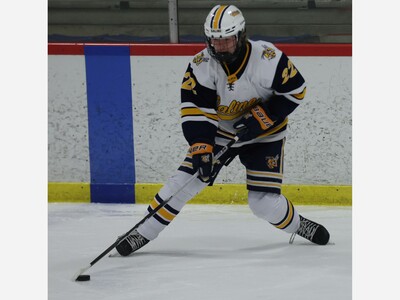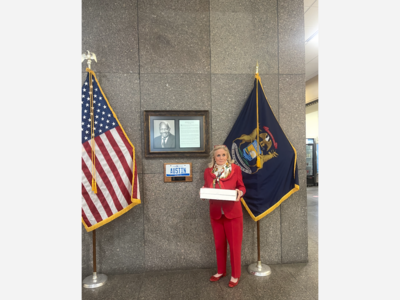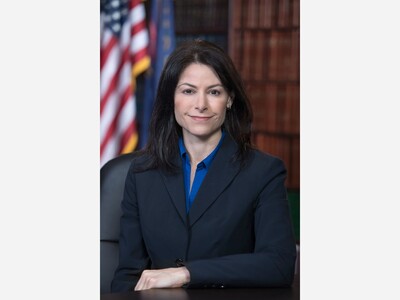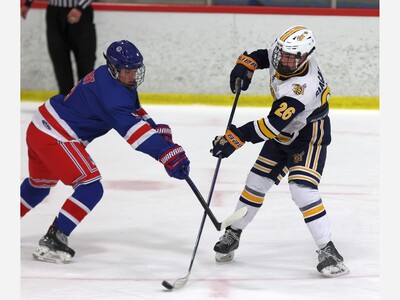Washtenaw County Prosecutor Eli Savit Announces Low-Level Juvenile Offenses Won't Be Charged
(Press release from Washtenaw County)
Washtenaw County Prosecutor Eli Savit, who took office January 1, today announced that—absent exceptional circumstances—his office would no longer criminally charge low-level juvenile offenses against children.
In a 10-page policy directive issued to Assistant Prosecuting Attorneys Monday morning, Savit emphasized that “voluminous scientific research and legal doctrine” indicates that “children (and teenagers) are not small adults.” Because young brains are “still developing,” the directive emphasized, children and teenagers are more likely to engage in “risky behavior”—and less likely to be “deterred by potential punishment.” And because “young people are more susceptible to trauma and to fear than adults,” “a punitive approach can severely stunt a child’s neurological, emotional, and social growth.”
Thus, “a punishment-oriented approach to juvenile justice is largely counterproductive.” Citing a decade-long, intensive economic study, the directive notes that research has demonstrated that “incarcerating young people makes it more likely they’ll commit crimes again.”
Under the new policy, the Prosecutor’s Office will “avoid charging juveniles with minor offenses that are best resolved outside of the criminal-justice system.” Those include “status-based crimes,” such as truancy, curfew violations, and running away from home; tobacco or vaping-related offenses; disorderly conduct-related offenses; and offenses related to juvenile experimentation with marijuana or alcohol.
The policy does provide, however, that Assistant Prosecuting Attorneys may authorize a delinquency petition if a “minor is dealing with a serious substance-use issue,” and it is “apparent that substance use treatment resources are significantly more likely to be accessed if a petition is filed.” In such circumstances, charges are to be dismissed once substance-use “programming is successfully completed.”
The policy also provides that minor “school-based offenses,” and parallel “offenses involving similarly aged peers,” should not be handled by the criminal-justice system. It is “generally inappropriate,” the policy notes, “to file a delinquency petition arising out of, for example, a schoolyard fight, or a minor theft from a classroom.” Such incidents, the policy notes, are best dealt with at a school level. Charges may, however, still be appropriate where the factual circumstances go “beyond typical school incidents”—such as serious assaults or major thefts.
In addition, the policy directive indicates that charges should typically not be filed against a young person “where there is reason to believe that young person’s behavior was the manifestation of a diagnosed disability.”
“As a former 8th-grade teacher, I know full well that young people will make mistakes,” Savit said. “But in most cases, these mistakes do not need to be addressed through our criminal legal system.”
“The data is clear. In the typical circumstance, a detention-oriented approach makes it more likely a young person will commit future criminal acts,” Savit continued. “Today’s policy directive is about providing a young person an opportunity to learn and grow from their mistakes, without being tethered to the criminal legal system. That’s the fair and humane thing to do. And it will also keep us safer in the long term.”
Savit emphasized that his policy directive builds on an increasing emphasis in Washtenaw County on keeping young people out of the criminal legal system.
“Today, in part due to the COVID-19 pandemic, the population at our juvenile detention center is at a record low,” Savit said. “Law enforcement, and our juvenile justice system, have done excellent work to keep young people out of the system, and have done so without compromising public safety.”
“Today’s announcement means we’re doing our part,” Savit concluded. “A less punitive—and more rehabilitative—approach to juvenile justice will serve all of us in the long term.”
The full policy directive is available for the public to view at https://www.washtenaw.org/DocumentCenter/View/19298/Juvenile-Charging-Policy. Savit has promised that his policy directives will be made available for the public to see.
More News from Saline
- BOYS BASKETBALL: Costigan Shines in Saline's Defeat of Pioneer Sophomore Brady Costigan scored 24 points to help Saline down Pioneer, 70-60.
- GIRLS BASKETBALL: Roehm Leads Saline Past Pioneer Senior Keira Roehm scored 21 points to lead Saline to a 63-33 win over Pioneer Friday














